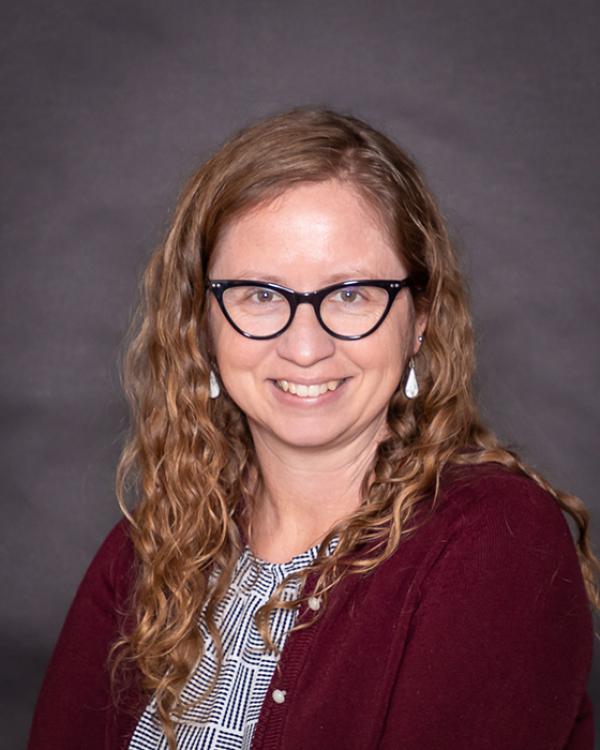
Alumna April Regester (Education, Ph.D.,’09, ESC and M.Ed.) and her co-principal investigators at the University of Missouri-Saint Louis (UMSL) recently received $2.1 million in federal funding from a five-year Department of Education Transition and Postsecondary Programs for Students with Intellectual Disabilities grant. The grant, she says, will help “develop a 4-year pathway leading to industry-specific credential options, enhance existing supports, and build capacity to spur growth and sustainability of postsecondary education (PSE) programs in Missouri.”
But that’s just one of her honors that made us realize it was time to profile this leader in special education more fully. In 2019, TASH, an international leader in disability advocacy, presented Regester with a TASH Board of Directors Award. In 2017 she received the Special Ambassador Award from the Special School District of St. Louis County as thanks for seven years of innovative and inclusive work on behalf of students, families, and community partners.
An associate professor at UMSL, Regester says she “has focused much of my recent work on the development of programs like UMSL Succeed, identification of best practices in PSE’s, family and student transition supports related to postsecondary education, and other critical components for successful inclusive higher education experiences for students with intellectual and developmental disabilities (IDD).”
Her passion for this work began when she attended Goleta Valley Junior High and Dos Pueblos High School, both in Goleta. Regester participated in programs that supported the development of friendships between students with and without disabilities. “UCSB played a role in that, as I was actually involved as a participant in studies (some led by Tom Haring, Cathy Breen, and Charles Peck) that were being conducted on the impact of these programs,” she relates. “These experiences had a huge impact on my life, the friends I made, and my career. I knew inclusive education was beneficial to all – because I felt it and it made a huge difference in my life. That has driven my work since then, and I continuously draw on those experiences and my friends from those years to inform what I do.”
For instance, in high school some of her teachers and facilitators of those programs provided opportunities for Regester and her peers with and without disabilities to experience risk and learn from it. Now, a series of articles she is working on with colleagues explores the dignity of risk for students with IDD in inclusive postsecondary education programs like UMSL Succeed. “While writing these articles, I now realize that their willingness to provide us those opportunities really led to growth and self-determination for all involved,” she asserts. “I just didn’t have a name for it at the time.”
She also thinks fondly of her time at UCSB and the Gevirtz School, especially given her opportunities to re-connect through TASH. She even got to sit on the TASH board with George Singer, her doctoral advisor, and has had the opportunity to keep members of her teacher ed and doctoral cohort as colleagues. “I love staying in touch and when we can see each other at conferences such as TASH – it gives me the biggest energy boost,” she says. “I continue to learn from them on a daily basis. In short, UCSB has produced some pretty amazing educators!”
Looking to the future, she does say there have been some positives despite the misery and disruption COVID has caused. “I think we have learned a lot about technology – and how it could potentially improve access for many people,” she suggests. “I have a different group of students who engage with me in my online classes versus the group that traditionally ‘raise their hand’ in-person. That has really made me reflect on how I can use technology to provide better access all the time, regardless of a pandemic.”
As for the post-pandemic future, her goal would be to put herself out of business…sort of. “I would love for me to be out of a job as a Special Educator – not because I think that disability doesn’t exist or supports aren’t needed – but because I would love to have a day in which we all identify as educators, teaching all kids for the benefit of all kids,” she says. “Acknowledging and celebrating all that humanity has to offer, including those with disabilities.”